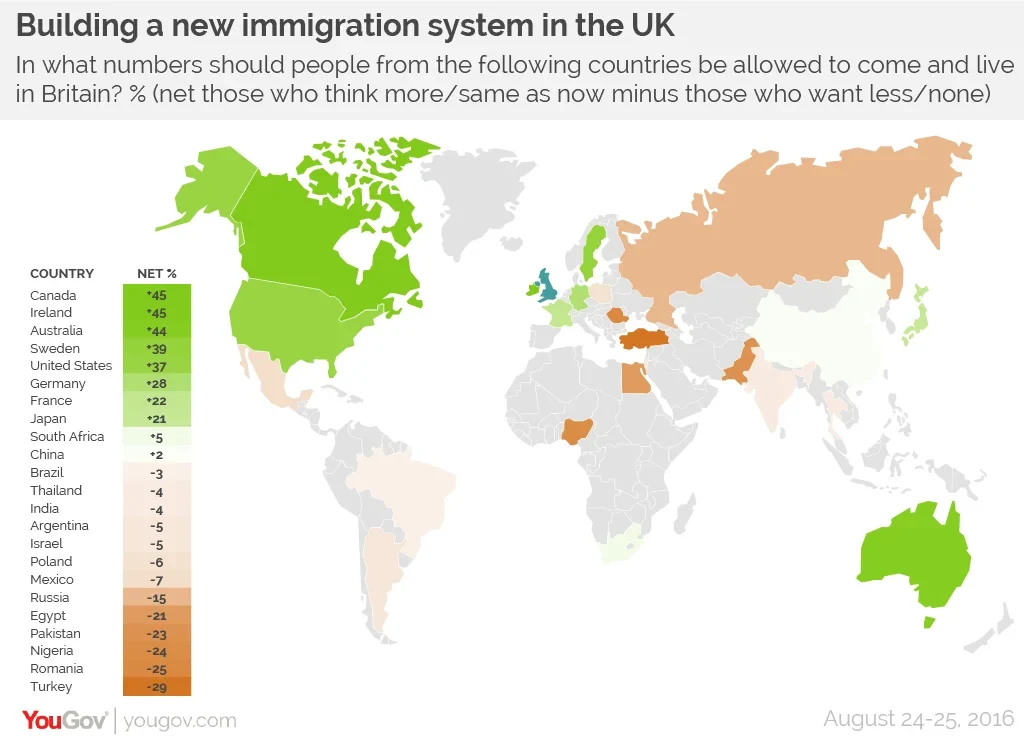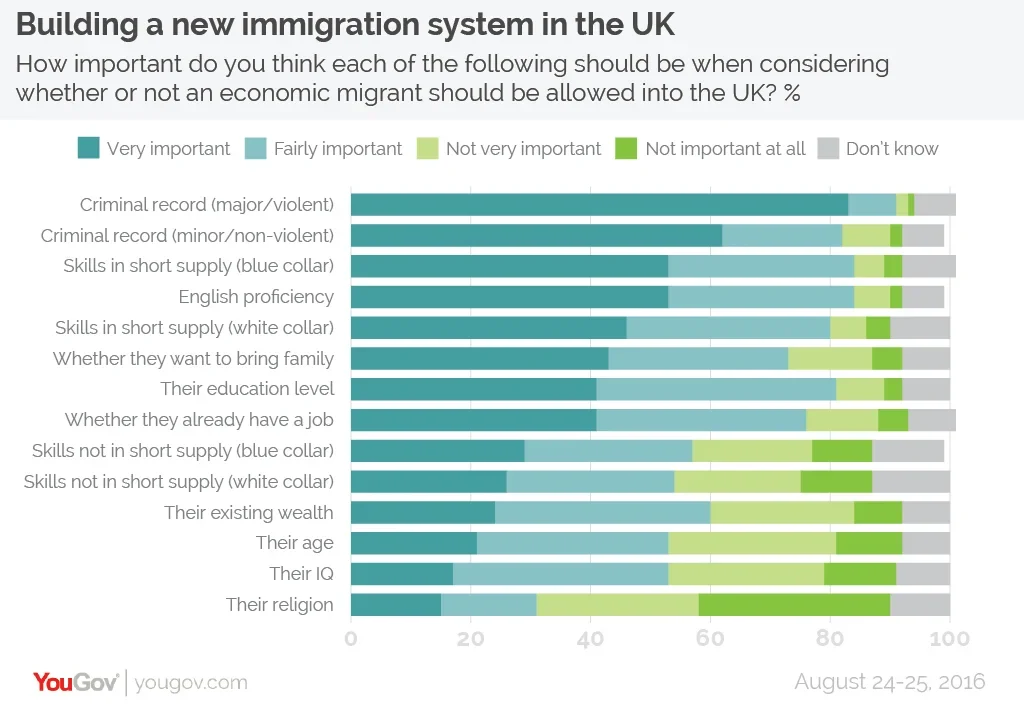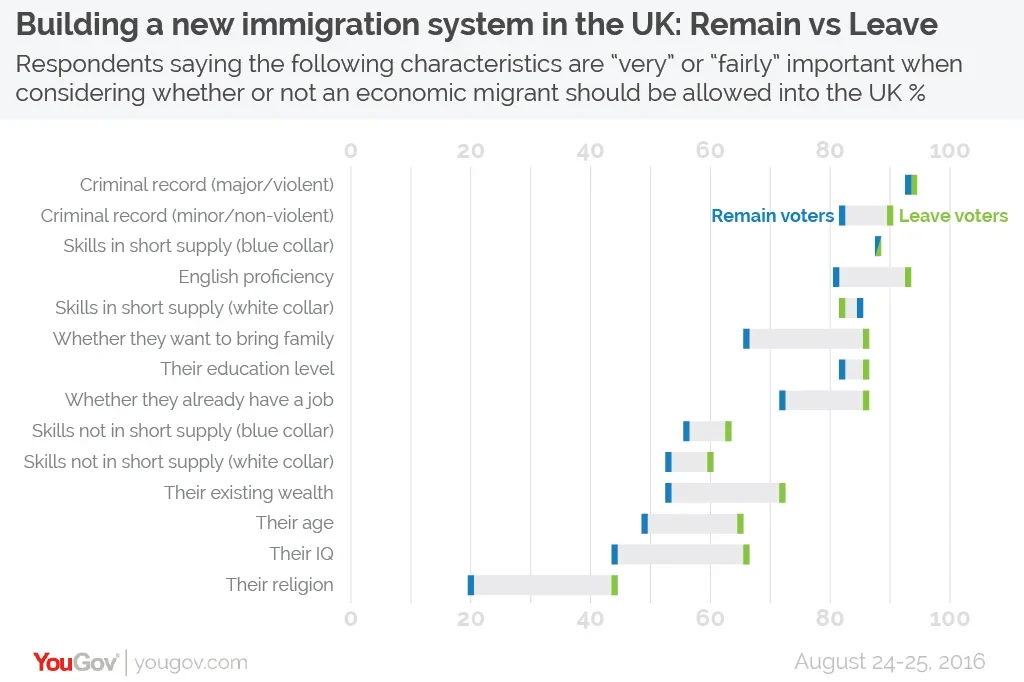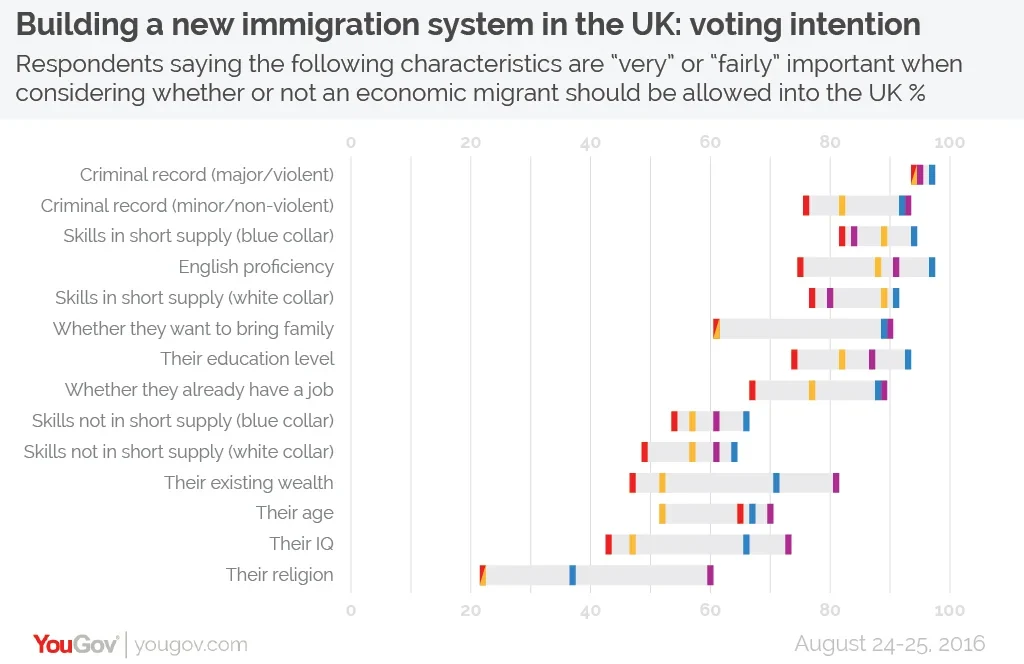New research from YouGov reveals that, if voters could have their ideal immigration system, it would heavily penalise immigrants from certain countries and reward in-demand skills and well-spoken English
Now that Britain has voted to leave the EU, the government is going to have to develop a new immigration policy. For many – including new Prime Minister Theresa May – the message of the referendum result was that immigration levels will have to come down drastically.
A new YouGov survey confirms the extent of this message, showing that an overwhelming majority of the public – 70% of people – think that immigration into Britain has been too high over the last ten years. Close to half (44%) say it has been "much too high". The government is going to face a backlash if it is not able to design an immigration system that is popular with the public.
However, the frank preferences on what kind of immigrants the public would like to see more of or less of will be difficult to translate into government policy.

There is a strong desire for a reduction in migrants from Eastern Europe, Africa, the Middle East and South Asia. At least one in five people say that the UK should not admit a single migrant from Turkey, Romania, Nigeria, Egypt or Pakistan.
The hostility to certain countries reflects both cultural and economic concerns. Of the countries listed, Britons are most happy with migration from advanced economies, particularly those with English-speaking populations. And when looking at what factors should determine whether or not a migrant is allowed to enter the UK, the results show a public that is keen to ensure their jobs and safety are not disrupted.
Criminality is the top of the public’s list of concerns. More than eight in ten (83%) of people said that whether a migrant had a record of violent crimes was “very important”, as did 62% for minor or non-violent crimes, making them by far the two highest responses in this category (a further 8% and 20% respectively said these factors were “fairly important”).

The vast majority of people think that whether a person has skills in short supply is important (84% for blue collar jobs and 80% for white collar jobs), but this drops to just over half for people with skills that are not in short supply (57% for blue collar jobs and 54% for white collar jobs). Three quarters (76%) of people are also keen to ensure that a migrant already has a job lined up.
English proficiency was important for 84% of people, whilst a migrant’s education level was important to 81% of people. It is clear that the public are keen to scrutinise most areas of a migrant’s life – majorities of people thought it was important to factor in whether a migrant wanted to bring their family (73%), their existing wealth (60%), their age (53%) and even their IQ (53%). In fact, the only area that the majority of people didn’t think was important was a migrant’s religion (31%).

Unsurprisingly, Remain voters take a much more laissez-faire approach to what type of migrants the UK admits than their Leave-voting counterparts. There are some areas of consensus though – around skills and education. This could be a potential area of emphasis for the government, allowing them to mimic the much-cited "Australian points system".

There are wide variations between voters of different parties on whether certain migrant characteristics are important as to whether they should be allowed in the UK. Whilst people intending to vote UKIP and Conservatives are more likely to consider most migrant characteristics to be important, UKIP voters are comparatively less concerned about the migrants' skills, but much more concerned about their religion. This could reflect that UKIP voters are more animated by cultural, rather than economic, considerations than Conservatives.
Intriguingly, for a party that was developed to represent the working class – a working class that voted Leave by 65% and which thinks immigration has been much too high by 75% – people who are currently intending to vote Labour are the least likely to think any migrant characteristic is important.
The research underlines the challenge facing the government, as they seek to chart a line between the stark and politically challenging views of most voters on immigration, and the need to retain good trading and diplomatic relations with the developing world.
Photo: PA
Save






